The Safe Internet for the Whole Family project, which is being implemented under the slogan “Children and the Internet – Smart from the Beginning“, has been launched by UNICEF and Telenor, and realized in cooperation with the Ministry of Education, Science and Technological Development and the Užice Centre for Children’s Rights.
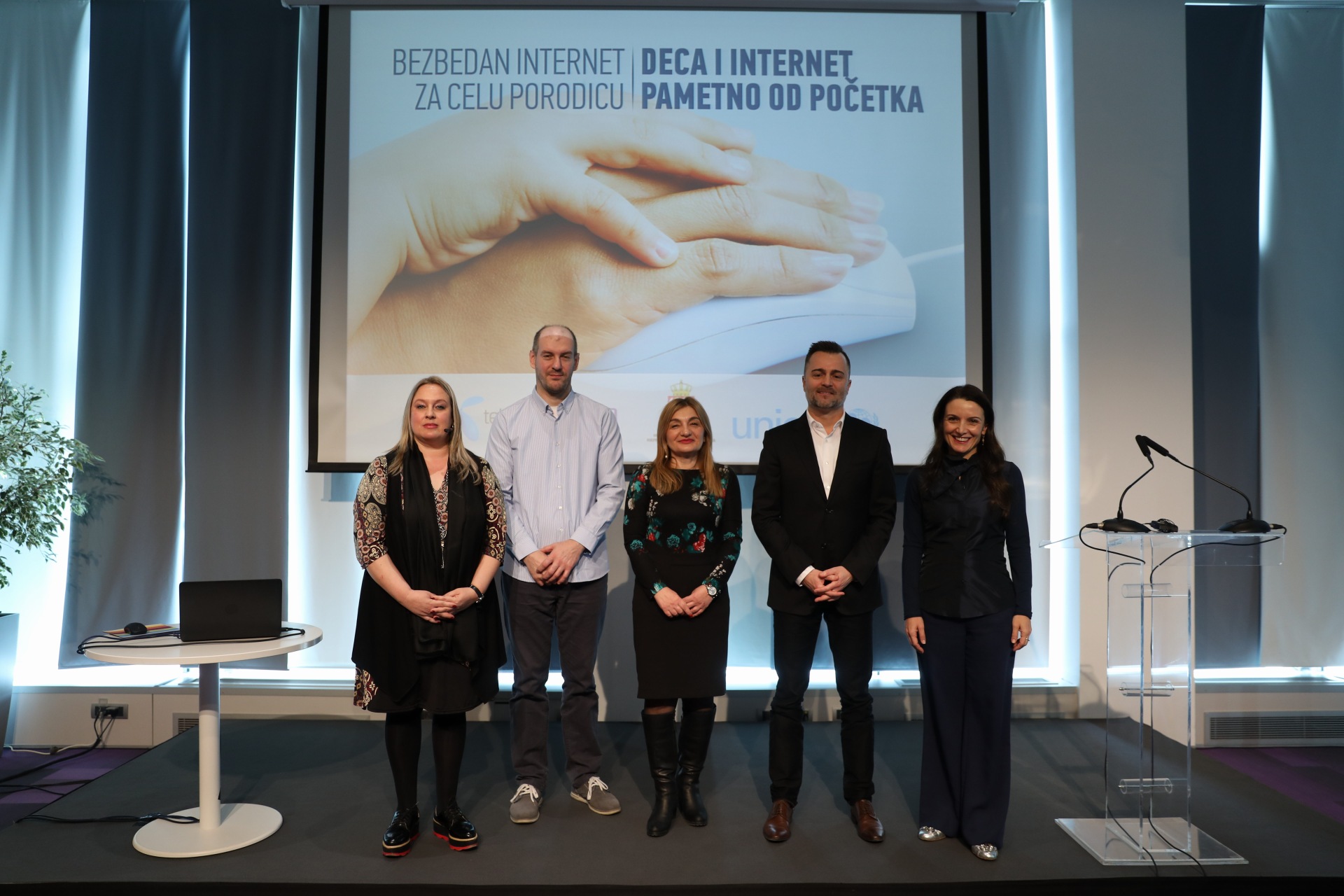
The project was launched in 2017 and aims to empower parents, nursery and school teachers for safe use of digital technologies and the Internet and to reduce children’s exposure to online risks. Five cities in Serbia are involved in the project – Belgrade, Kragujevac, Novi Sad, Niš and Užice.
Based on the relevant survey, the first digital guide for children online safety in Serbia called “Children and the Internet – Smart from the Beginning“ has been devised. The guide is intended for parents / guardians, nursery and school teachers of children aged four to eight, children in general and everyone involved in their education, with the aim of informing and supporting children in preschool facilities and how to safely and constructively use digital devices and the Internet . During the project, a series of cartoons was made for the youngest target groups. Most children use digital devices already at the age of four. Elementary school children begin to use a computer and a mobile phone when they turn 5, while those children under the age of 5 start using these devices around the age of three. 2/3 of parents and educators do not have enough knowledge and skills to protect them from possible abuse, the survey has showed.
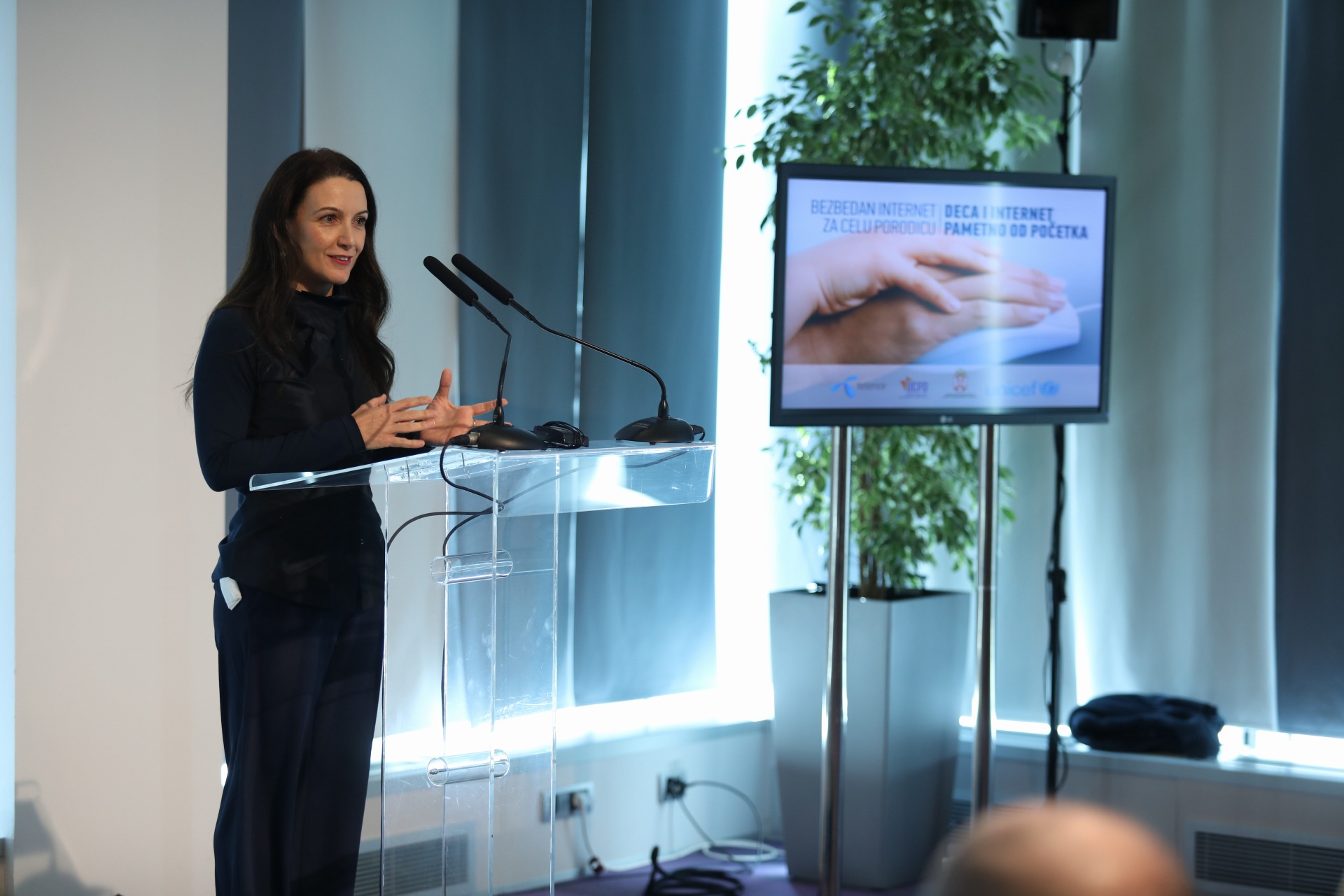
“Children are starting to use digital devices and the Internet at a progressively earlier age. At the same time, parents, educators and teachers do not have enough knowledge and skills to direct children how to use digital technology in a constructive way, and how to help them be safe on the Internet. This digital guide offers a variety of specific tips, as well as a dictionary for the digital age. For children, there are educational cartoons, as well as a quiz to check their digital literacy skills,” said Regina De Dominicis, UNICEF Director for Serbia. She especially thanked Telenor, a UNICEF project partner for many years, for their effort in creating a safe digital environment for children.
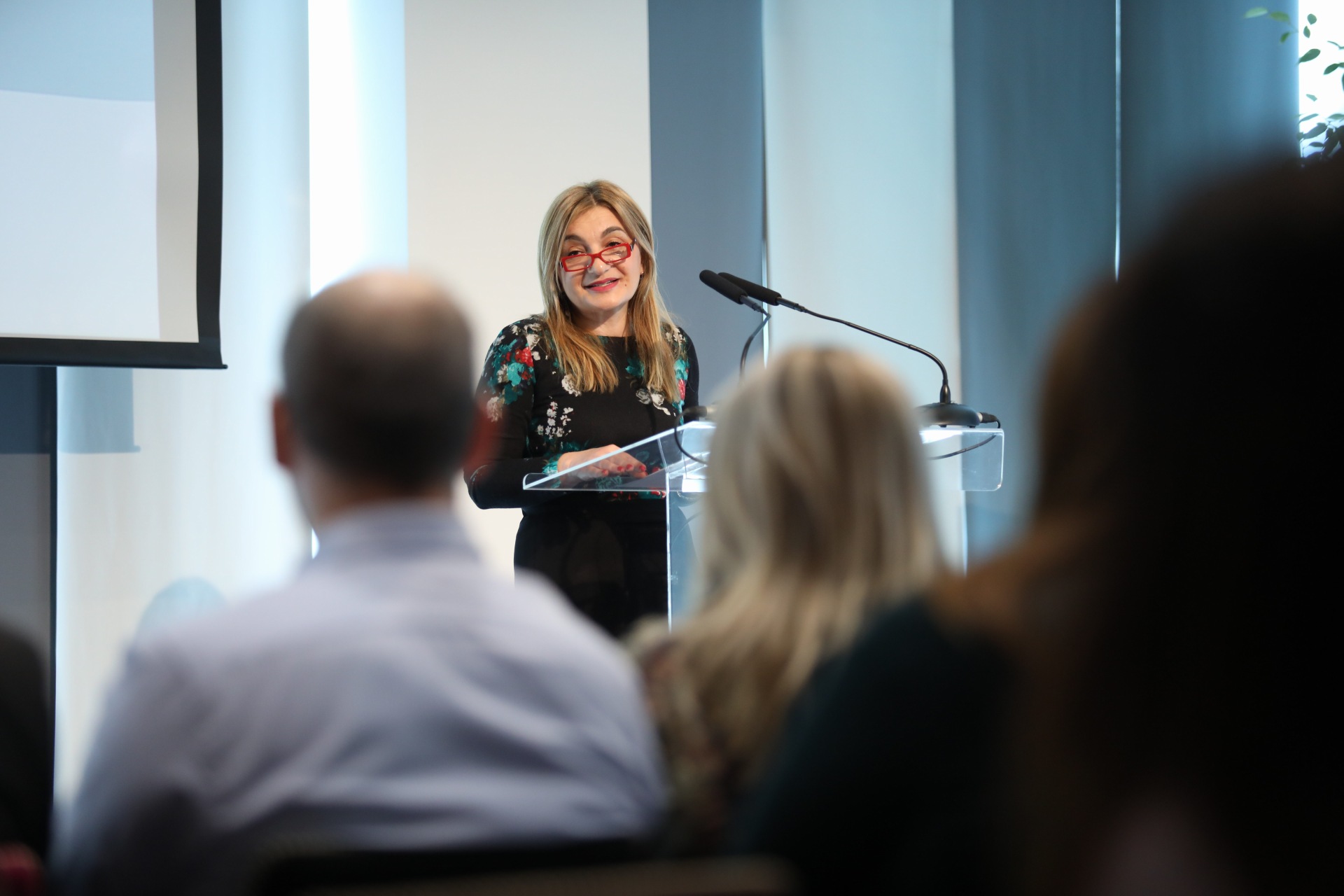
Vesna Nedeljković, Assistant Minister of Education for Pre-school and Elementary Education, reminded that the Ministry had developed the “Digital Teacher Competence Framework” in 2017, which serves as a framework for boosting the digital competencies of teacher. “In this digital world, the challenge is twofold: how to maximize the benefits of the Internet for each child and mitigate the damage that can be caused by online abuse. One of the Ministry’s priorities is the development of digital literacy and digital competence in children in order for them to be informed, engaged and safe online, and to use digital technologies in a quality manner and for learning purposes,” she added.
The private sector, especially in the field of technology and telecommunications, has a special responsibility and a unique opportunity to shape the impact that digital technology has on children. Telenor, a long-standing partner of UNICEF, is one of the best examples.
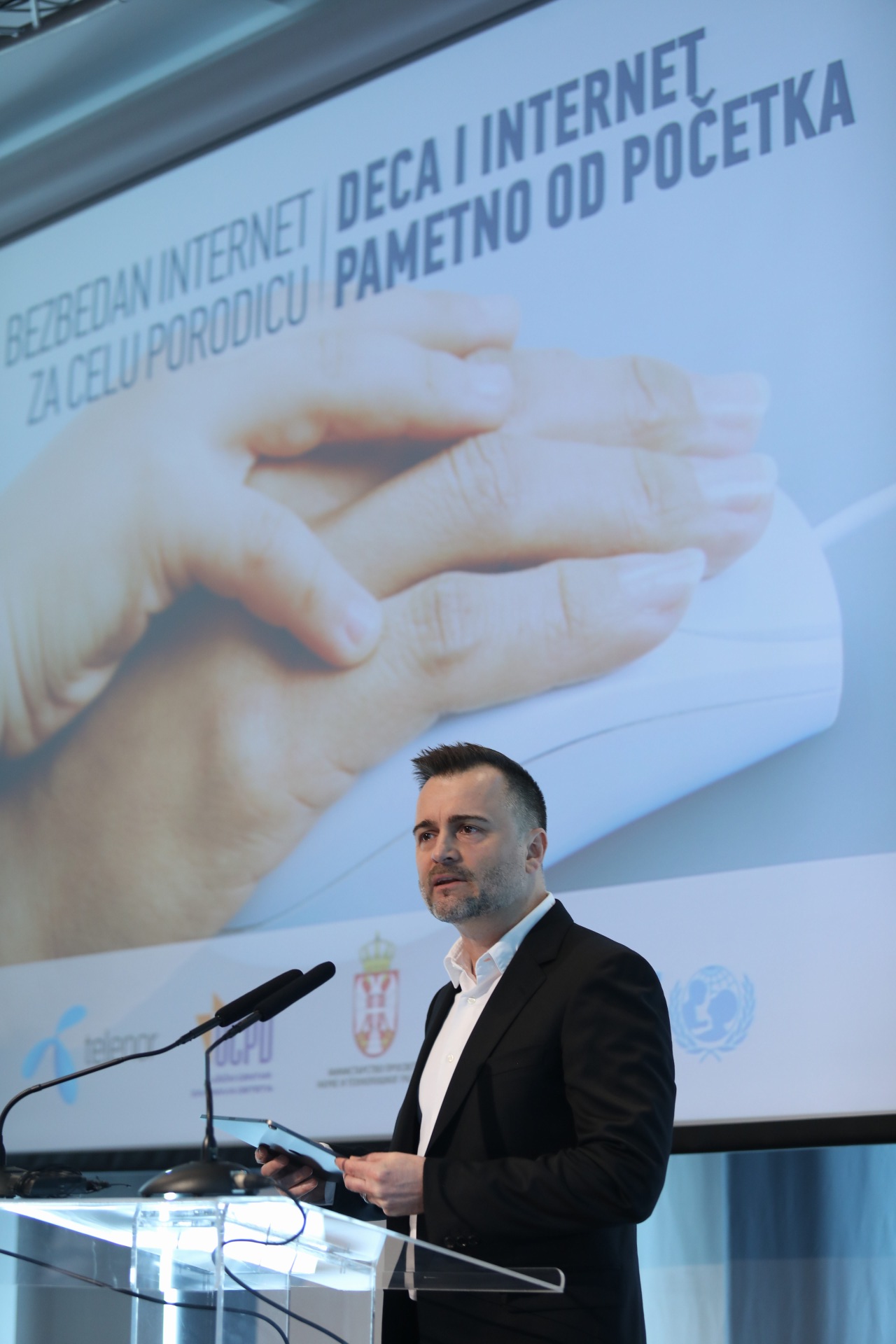
„We, in Telenor, have been strategically focusing on the topic of safe use of the Internet and digital technologies by children and young people. From 2012 to date, we have educated more than 35,000 children about safe online behaviours, with the strong support from the Government, UNICEF and numerous partners. The digital guide we launched today provides practical knowledge and is available to every parent, teacher and child in just a few clicks. We believe it will represent a good basis for creation of a safe and positive digital environment for children and families in Serbia,” said Mike Michel, General Manager of Telenor Serbia.
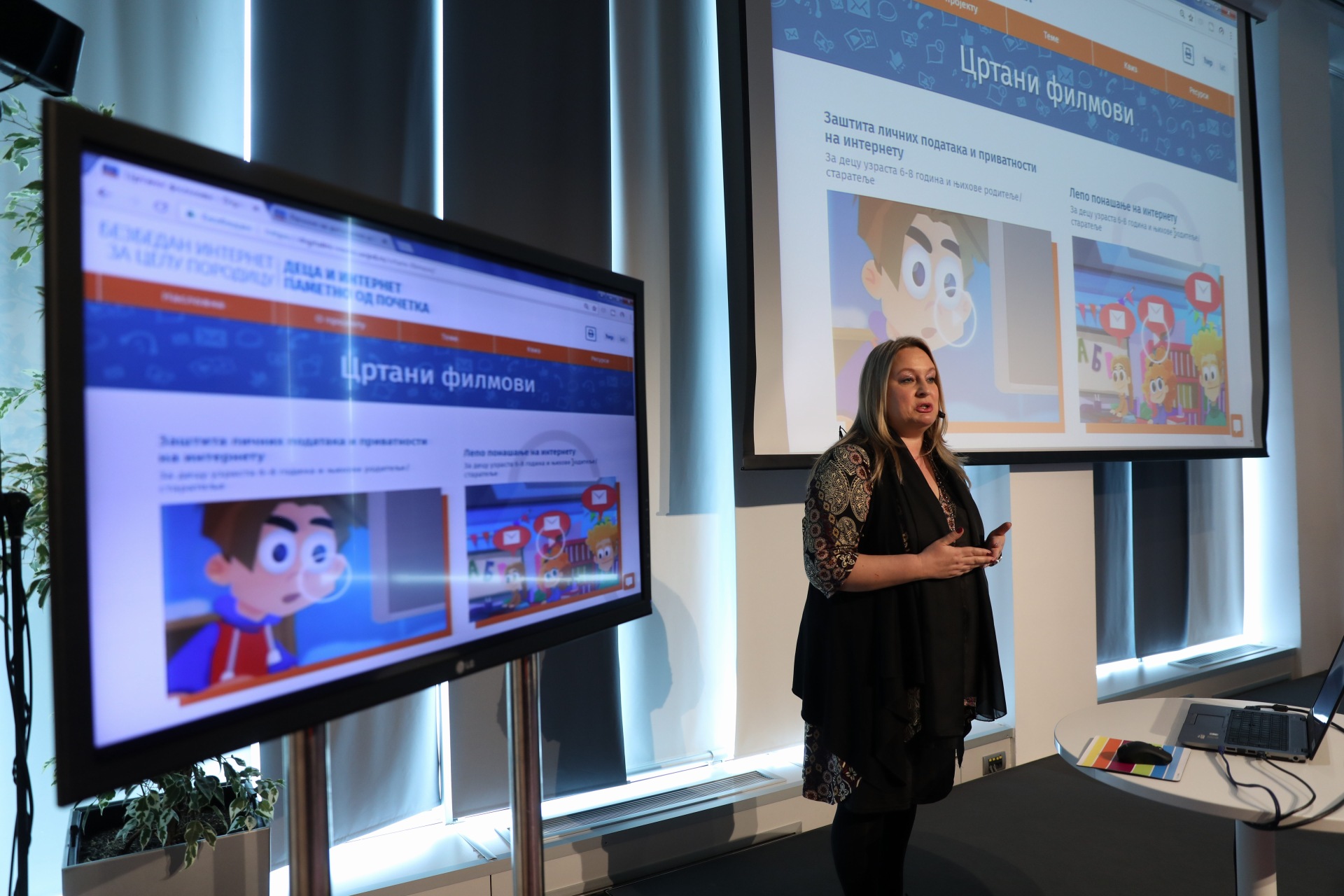
„Children’s rights, guaranteed under the UN Convention of the Rights of the Child, are in force in digital world too, as are the obligations of both the state and parents to help their chidlren to exercise and enjoy their rights. The guide we have developed contributes to the protection and realization of the children’s rights, which, in this fourth digital revolution, is a major challenge. Primarily, it refers to the right of the child to enjoy protection against violence and discrimination, protection against harmful and inappropriate content, protection of privacy, as well as the right to freedom of expression and the availability of information that is relevant to children’s development, and the right to quality education, play and partake in cultural activities,” said Jelena Žunić Cicvarić from the Užice Children’s Rights Centre.
The digital guide for the children online safety will be used in schools and nurseries, as well as in parents ‘and teachers’ associations across Serbia. Parents see it here – http://digitalni-vodic.ucpd.rs/